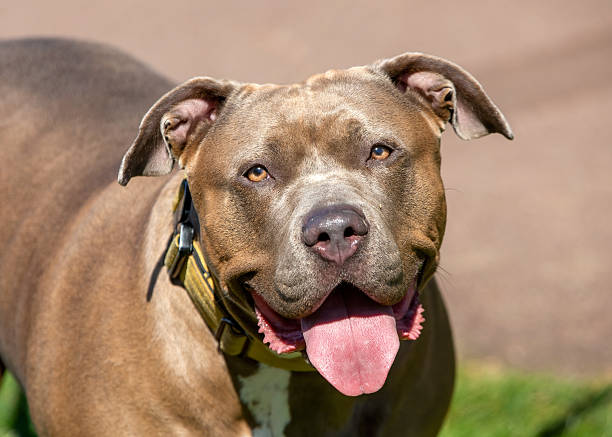
A Public Hearing into the Draft Dogs Law (Jersey) Amendment Regulations, has highlighted the urgency of the proposed changes needed, but also clarified issues that could have had unforeseen consequences for all dog and livestock owners.
The Environment, Housing and Infrastructure Scrutiny Panel questioned the chairman of the Comité des Connétables, Constable Mike Jackson, his officers, and the States Vet, Susana Ramos.
The Panel is fully in support of the aim of the principal change, which is to bring Jersey in line with the UK and many other jurisdictions in terms of the regulations for certain breeds of dogs, in particular the XL Bully.
This type of dog was added to the list of dogs banned from being imported into or exported from the Island in 2024, however there were already a small number of dogs in Jersey. The States Vet, Susana Ramos, told the Panel that there were four dogs in the Island at that point and their owners were contacted and advised to follow certain controls (in force in the UK) which included not breeding from the dogs and keeping them muzzled in public. However, there are now ‘significantly more’ of these types of dog in the Island, with the added risk of cross-breeding, and so legislative powers are needed in order to enforce the controls.
Ms Ramos was keen to be clear that it is not inherent that the dogs are dangerous, but that certain types can cause bigger harm due to their physiology. It is a move to protect the public and in particular children, and prevent the situation in the UK where half of the 16 deaths attributed to dog attacks in 2023, were caused by XL Bully types.
Deputy Hilary Jeune, Chairman of the Environment, Housing and Infrastructure Panel, said:
‘It’s clear there is an urgency in this matter in order to prevent further breeding of XL Bully types in Jersey. However, the Comité made two further amendments to the current legislation which unwittingly would have had implications for the approximately ten thousand dog owners in Jersey and for livestock owners. Greater consultation prior to these amendments could have prevented this, but we are pleased that the Constable confirmed today that the Comité has listened to Scrutiny and now agreed to revise the issues we raised while still pushing through the urgent changes needed.’
One of the changes involved dog tags. The Comité’s proposal changed the legal requirement for all dog owners to have a tag that carries the dog’s licence number and not the owner’s name, address and phone number as is currently in law. It was deemed more appropriate for data protection reasons. This would have required all of the 10,000 dog owners replacing their current tags in the new year. Constable Jackson said they will now amend that to only be a requirement for all new dogs registered after February 2026, and all new tags purchased for reasons of the owner moving property etc.
In addition, the Panel questioned the Comité on the proposed changes to Article 9 relating to livestock worrying and damage to agricultural land. Connétable Jackson said this had been to prevent dog faeces from damaging crops and cited a farmer who had their crop rejected by a supermarket due to contamination by dog faeces. In addition, dog faeces can spread a parasite which is the leading cause of abortion in cattle. However, it was agreed that a wider review of the issues of damage to land and livestock by dogs is required in order to prevent unforeseen issues and would be withdrawing that Article from the current Proposition.
The Draft Dogs Law, proposed by the Comité de Connétables, had been scheduled for debate on 30 September, but following the concerns raised by the Environment, Housing and Infrastructure Scrutiny Panel, it was now timetabled for the 11 November sitting.




